- Casino
- By State
- Alabama
- Alaska
- Arizona
- Arkansas
- California
- Colorado
- Connecticut
- Delaware
- Georgia
- Florida
- Hawaii
- Idaho
- Illinois
- Indiana
- Iowa
- Kansas
- Kentucky
- Louisiana
- Maine
- Massachusetts
- Maryland
- Michigan
- Minnesota
- Mississippi
- Missouri
- Montana
- Nebraska
- Nevada
- New Hampshire
- New Jersey
- New Mexico
- New York
- North Carolina
- North Dakota
- Ohio
- Oklahoma
- Oregon
- Pennsylvania
- Rhode Island
- South Carolina
- South Dakota
- Tennessee
- Texas
- Utah
- Vermont
- Virginia
- Washington
- West Virginia
- Wisconsin
- Wyoming
- By State
- Slots
- Poker
- Sports
- Esports
- Home
- Who Is the God of Gambling?
Who Is the God of Gambling?

People call them tricksters and mischiefs and they have a point. In all cultures, ancient, bygone, and modern, every god or goddess of gambling tends to exhibit some sort of playful malevolence. And yet, as men and women seem to think they are playing dice against the fates, your average god of gambling prefers to play chess.
Today we take a look at those deities who style themselves as gods of gambling or who have come, through faults of their characters, to be perceived as such. Many gamblers tend to pin their hopes on the sovereigns of old, but is this really worth the risk?
We take a look at the known myths about the gods of gambling out there and what has made people believe they can entrust them with their own fate. But here is a word of warning: save yourself the finger-crossed begging of the fates, because there is a god of gambling after all, and it’s to him or her you ought to be directing your supplication!
The Greek God of Gambling
Greek Mythology abounds with gods and goddesses. They lord over every aspect of the daily lives of mankind unless they forget about our existence, and so it should not surprise you that the Greek pantheon actually has its own god of gambling. Enter Hermes, the messenger of Zeus himself, and a bit of an enfant terrible.
Hermes
Hermes is an archetype deity. He fits the profile of your average god of gambling, and while he is associated with fertility, wealth, and luck, this old-timer had a rascal side. Scholar works always remind you that while he looked over farmers’ crops and commerce, he was also known for his mischievous and clever nature.
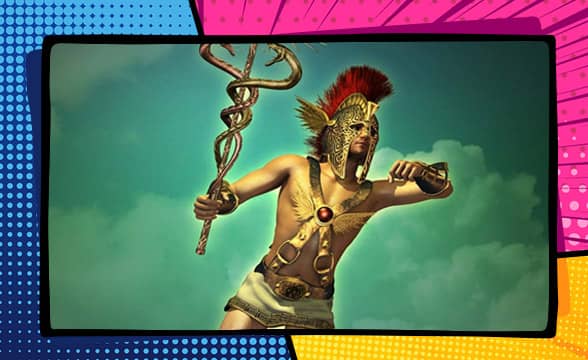
Even as a baby, Hermes was already up to no good. He once stole Apollo’s herd of 50 cattle in Pieria and managed to keep them hidden so that even the Satyrs couldn’t find them. His exploits wouldn’t end there, as well.
He stole Poseidon’s famed trident and Artemis’ arrows, not to mention Aphrodite’s girdle. It was that playfulness that won him worship from gamblers who were impressed with the trickster, even though they knew that he’s hardly one to trust. He guided the Achaeans in the Trojan War but took pity on King Priam who set out to retrieve the body of his fallen son.
The Hindu Goddess of Gambling
The female figure in Indian culture plays a significant role, and it seems only fitting that the Indian god of gambling is actually a she! Lakshmi is unlike her Greek counterpart, and she prefers to show kindness over mischief. Yet, as any other celestial being, her temper tends to shift quickly, so you would want to stay on her good side.
Lakshmi
Lakshmi is the Hindu goddess of good luck and prosperity, and beloved in the Hindu religion. As one of the counselors of Vishnu, she has held sway over the minds of men and gods. Her charm tempted demons and deities who fought time and again to win her affection. What then makes mortal men think that they can impress Lakshmi enough to earn her favor in gambling endeavors?
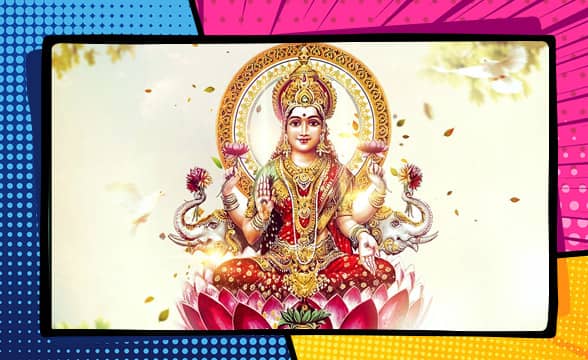
Well, the entire premise of the goddess is to bring contentment and material satisfaction. As such, her role in religion has evolved, and apart from signifying wealth, she’s also associated with the luck the majority of gamblers so often seek out from the universe.
Yet, Lakshmi once used to live with demons, before she joined gods, so her nature is a bit duplicitous as well. Can you trust her with your good luck? Perhaps, but if she deems you unworthy, then you better run!
The Egyptian God of Gambling
At its peak, Egypt was an unmatched civilization in terms of cultural development. Its kingdom sprawled far and wide, its prosperity was the envy of the world, and its unfortunate encounter with the Romans is where it started going downhill. Yet, the Ancient Egyptians did have their own god of gambling and good luck, among other things, and that was Thoth.
Thoth
The Egyptian culture is one of those great times of civilization that are shrouded in mystery. The complexity of Old Egyptian writing has led to many anecdotal interpretations, but if one thing is fairly certain it is that, just like anywhere else, gods in the Egyptian lore had numerous roles.
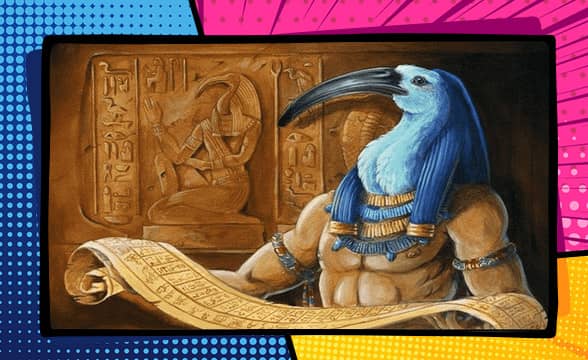
Thoth, a good most commonly associated with the moon, learning, writing, and an adviser to others, was also attributed some of the qualities of a god of gambling as well. Thoth seems to have come by this title not through any specific interest on his part, but rather his desire to be of help to others.
Interestingly, the Greeks quickly discovered the similarities between Hermes and Thoth, praising the Egyptians for their veneration of the deity. Yet, unlike Hermes, Thoth was a far milder deity with no interest in upsetting people’s fortune.
The Aztec God of Gambling
The Aztecs weren’t particularly warm people. They were a close-knit community, though, belligerent to outsiders and ecstatic at the idea that winning the good graces of those above required the occasional pound of flesh. Bloodthirsty as they were, the Aztecs did give rise to an impressive variety of deities, and one of those is Macuilxochitl, the god of gambling.
Macuilxochitl
Not much is known about Macuilxochitl, and the first thing that will strike you about him is that his actual name translates as “Five Flower.” This is a remarkably docile name in a culture that has been associated with quite a few scary practices.
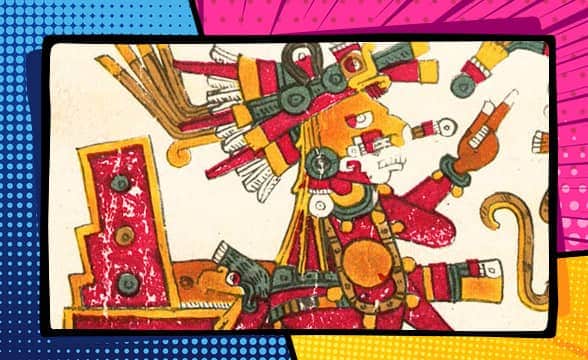
From what we know about Five Flower he was a busy god, and not just of gambling, but excess, art, and games. Yet, while the fates of mankind changed, Macuilxochitl seemed to stick around. He was first venerated by the Teotihuacan, but the civilization disintegrated, leaving beautiful and magnificent heritage behind, including the Pyramid of the Moon.
Seeing the progress of the Teotihuacan, the Aztec hurried to appropriate their gods and claim common lineage with them, and not least, paying homage to Macuilxochitl, the god of gambling.
He also had a character, and he often took vengeance on those he disliked for no particular reason. His cruelty, though, fitted right into the Aztec’s own world view, and the god enjoyed praise for years.
The Chinese God of Gambling
Chinese culture is over 3,000 years old, and as such, it’s a world heritage. During its long span, the region has inspired numerous legends and stories, and Nezha, the Chinese god of gambling and fortune, is one of those.
Nezha
The genesis of Nezha is actually quite interesting. Associated with all the perils of life, and suffering a semi-tragic fate himself, Nezha makes the perfect god of gambling. He understands despair as he knows downfall.
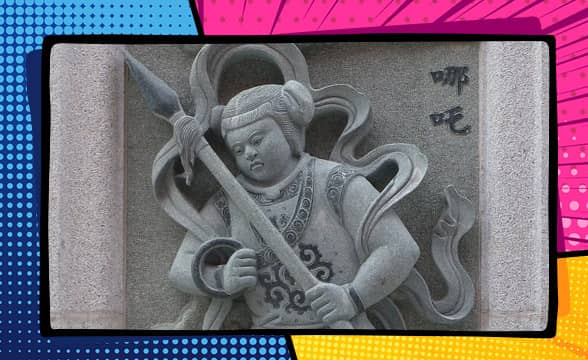
According to Fengshen Yanyi, Nezha was sent to his mother Lady Yin by the Jade Emperor during the reign of the Shang dynasty. His mother carried him to term for almost three years and when Nezha was finally born, he emerged as a gooey ball of flesh!
At the sight of this, his father Li Jing split the ball in two, and from the innards emerged the god as a young boy. As is fit for a god of gambling, Nezha had a character and he often got into trouble.
One of those times, though, he killed the son of Ao Guang, the East Sea Dragon King. Ashamed, Nezha sought to end his own life and succeeded, but he was brought back to life by Taiyi Zhenren, his teacher who had grown fond of the boy.
The Japanese God of Gambling
The Japanese culture is big on gambling and, in fact, the activity was regarded as a way to achieve social status. We talked about this as part of our gambling anime post, but if you want to know who presides over the games of chance in Japan, then you should turn to Kangiten, god of gambling.
Kangiten
Just as is fitting to a celestial being, Kangiten wielded great power. He was a protector above all else and worshipped by all who took a chance on life, including actors, geishas, and of course gamblers.
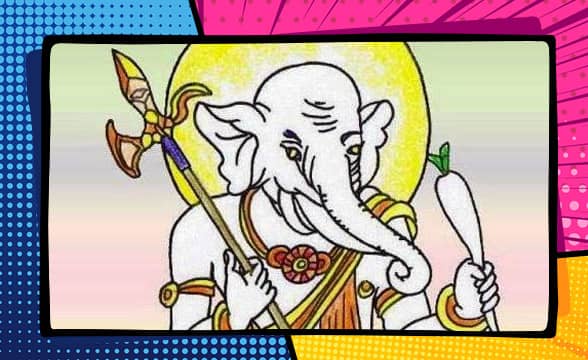
In a word, he was a deity to anyone who was in the “business of pleasure,” as one source puts it. In the Japanese lore, Kangiten had a tempestuous character, just like the other gods of gambling did, and he was irritable and prone to his outbursts.
For his patronage of the fine arts, though, Kangiten isn’t too widely known, although there are now 243 shrines built in his favor. The most significant temple was built on Mount Ikoma, which remained mostly unknown until the 17th century.
The Slavic God of Gambling
Slavic people were one of the first to adopt Christianity and forsake the old gods, and so, their lore isn’t studied in too much detail or romanticized as much. Yet, Slavic people did have their many gods, and interestingly more so than the Greeks and Romans and one of those was a god of gambling.
Dazhbog
Dazhbog is the Slavic god of wealth, giving prosperity and light. He is one of the first and most potent deities in the lore and one of the first to be forgotten, unfortunately. Yet, his fame spread far and wide and his significance for the pantheon is important.
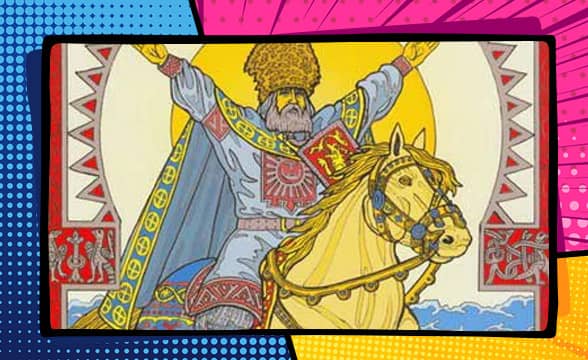
Although the Slavic people weren’t known as gamblers, they seemed to pin a lot of their hopes to Dazhbog when they sought fortune in life, and hence his name came to be “giver of wealth.” Another name for the deity is Stritbog, or a spreader of wealth. The analogy has not been clearly confirmed by academic sources.
The Nordic Goddess of Gambling
Nordic Mythology is one of the most popular around the world. The gods of the Nordic pantheon are known as unscrupulous celestial beings that inspired the Nordic people to great feats, in warfare and civilizational advancement. And yes, there is a god or rather goddess of gambling!
Geifon
Geifon or Gefjon is an assumed goddess of gambling whose identity and mark on mythology are not too well-documented. While she appears in Beowulf and a few other texts, little is known about her. Geifon was associated with good luck, fertility, and plowing, but then again she is also said to have been a virgin.
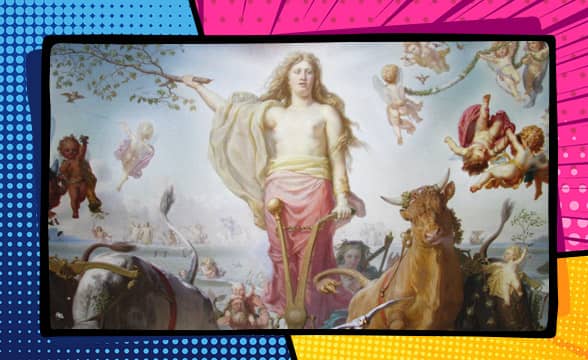
While generously smiling on chance takers, she is also not someone to cross. In the Poetic Edda, one of the passages suggests that Loki, the god of mischief, was foolish to have incurred the wrath of Gefjon who “sees the fortunes of all, even Odin himself”.
Who better to be a god of gambling than the goddess who sees everyone’s fates?
Native American Gods of Gambling
While “Native American” is used as a blanket term, it’s important to understand that there are numerous tribes and they all have a mesh of beliefs that do not naturally always coincide. Therefore, today we will talk about one specific deity, Nohoilpi the gambling god of Navajo.
Nohoilpi
Of all the gods of gambling we have talked about, there is no truer god of chance than Nohoilpi. He was born with the purpose of teaching mankind about gambling games and was worshipped for that.

Known as “the Great Gambler,” Nohoilpi is the son of Tsohanoai, the god of the sun in the nation’s lore. When Nohoilpi first descended on Earth, he showed mankind how to play, and introduced them to all sorts of gambling games.
Yet, he was a bit mischievous himself, and he defeated people, indebting them and asking to repay their debt by building a city to pay tribute to him. According to lore, the other gods soon became jealous of Nohoilpi, so they gifted a tribe member with exceptional acumen and prescience and sent him to face off with Nohoilpi and chase him away.
Guided by other deities, the man succeeded and sent Nohoilpi back to the heavens, but his legacy lives to this day all over North America! Nohoilpi used to carry a turquoise talisman, so if you are ever looking for a lucky charm fit for a god, here is a good idea.
Related Topics:
Luke is a media graduate who is looking to build upon his experiences from his strong love of sports betting and casino games which started during his first year of college. His fresh mindset always brings new content ideas to the team and his editorial skills will continue to grow with the help of the upper management team at Gambling News.
Must Read
Legal
November 17, 2019
Philippine Gaming Operators Involved in Prostitution Ring
Casino
October 7, 2019
Haven Gaming to Build Danville Casino in IL
Casino
October 6, 2019
MGM To Pay $735M as Part of Settlement for Las Vegas Shooting
Casino
September 28, 2019
Swiss Casinos Group Partners with Playtech
Sports
September 27, 2019
Mobile Sports Betting Finally Coming to Indiana
More Articles















December 3, 2024
Boxers Who Started Late and Became Champions
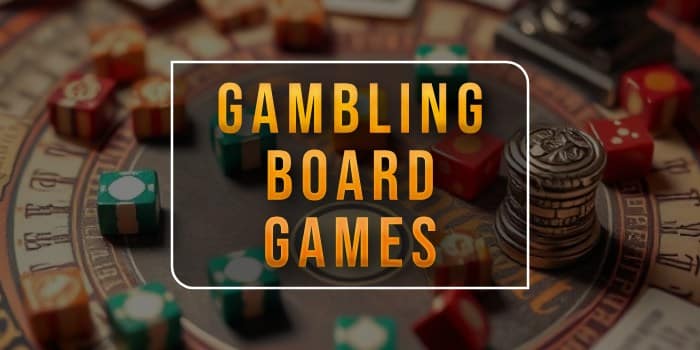
November 19, 2024
Best Gambling Board Games

October 25, 2024
Top 20 Books About Gambling
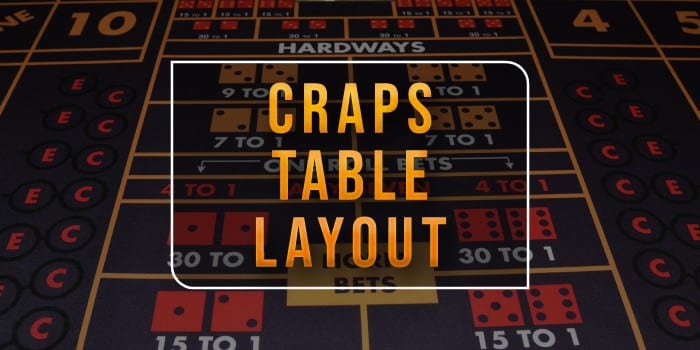
October 23, 2024
Craps Table Layout

Casino
October 21, 2024
Megabucks Slot Machines

September 30, 2024
What Soccer Positions Are There and How They Work

September 27, 2024
The Best Arcades in Las Vegas
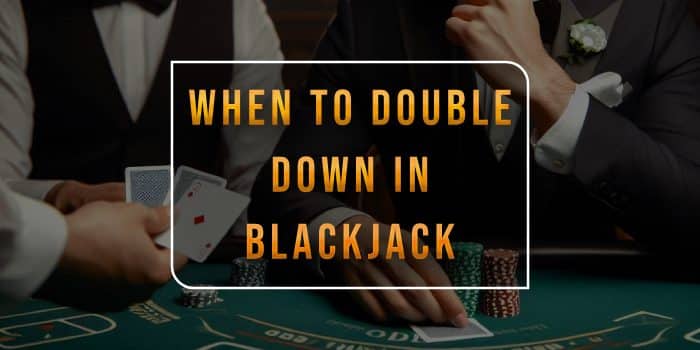
September 26, 2024
When to Double Down in Blackjack

September 24, 2024
Best Offshore Sportsbooks and Betting Sites

September 22, 2024
League of Legends World Championship: Odds, Tips & Predictions

September 19, 2024
How to Become Professional Gambler
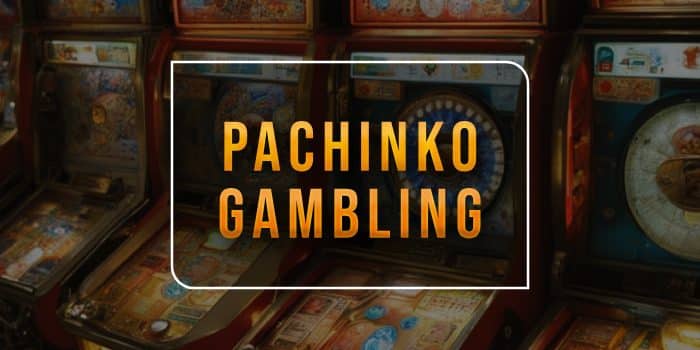
September 17, 2024
What Is a Pachinko Game Machine?

September 16, 2024
Michael Jordan Gambling: The Good, the Bad, and the Ugly

September 13, 2024
Best Odds in Vegas – Which Game Is Superior?




1 Comment
Good idea from nohoilpi